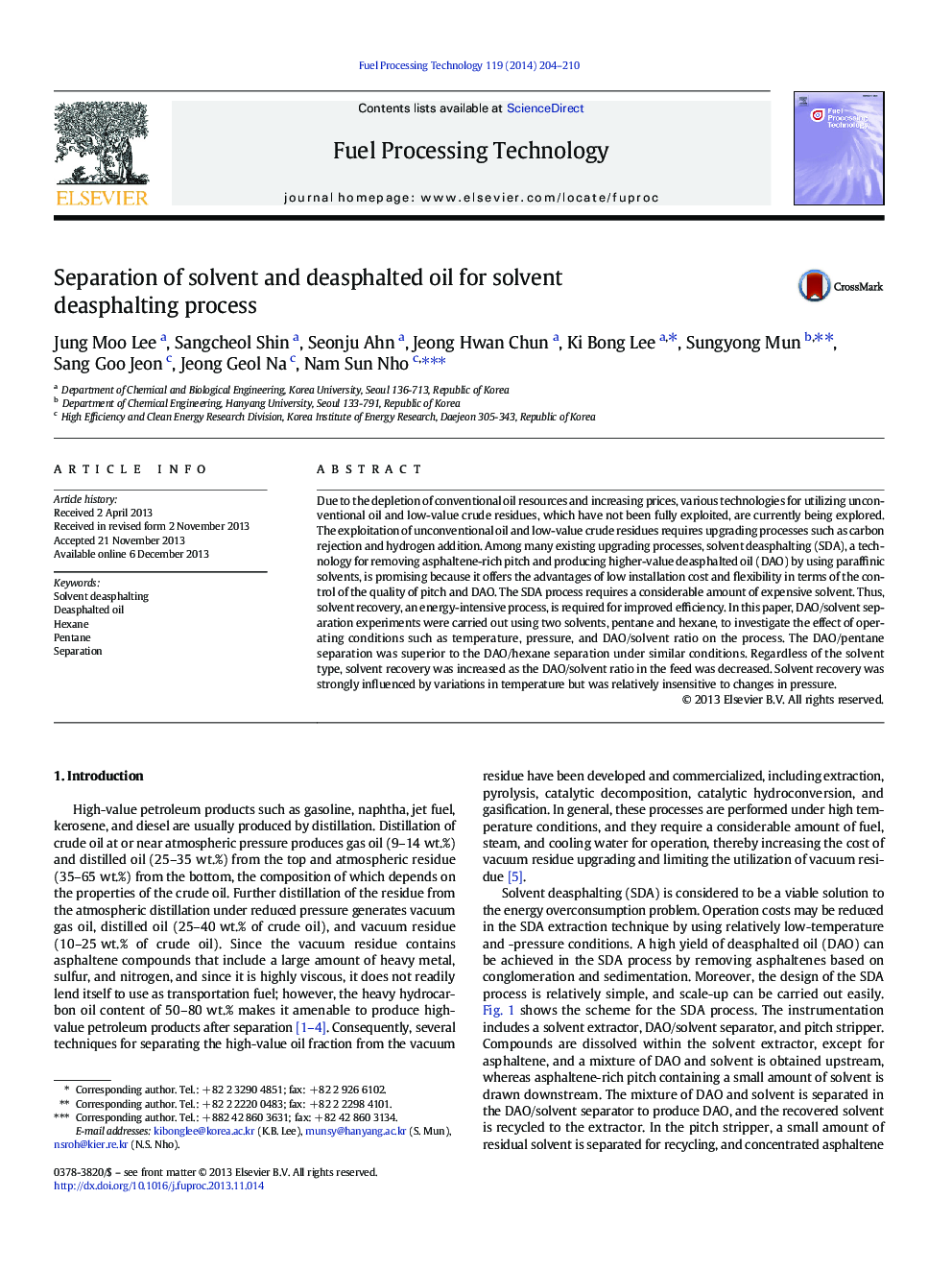| کد مقاله | کد نشریه | سال انتشار | مقاله انگلیسی | نسخه تمام متن |
|---|---|---|---|---|
| 209897 | 461687 | 2014 | 7 صفحه PDF | دانلود رایگان |
• DAO/solvent separation was studied for the solvent deasphalting process.
• Pentane and hexane were used as a solvent.
• The effects of operating conditions on solvent recovery were investigated.
• Solvent recovery was strongly dependent on the operating temperature.
• Solvent recovery behavior was significantly changed based on the critical temperature.
Due to the depletion of conventional oil resources and increasing prices, various technologies for utilizing unconventional oil and low-value crude residues, which have not been fully exploited, are currently being explored. The exploitation of unconventional oil and low-value crude residues requires upgrading processes such as carbon rejection and hydrogen addition. Among many existing upgrading processes, solvent deasphalting (SDA), a technology for removing asphaltene-rich pitch and producing higher-value deasphalted oil (DAO) by using paraffinic solvents, is promising because it offers the advantages of low installation cost and flexibility in terms of the control of the quality of pitch and DAO. The SDA process requires a considerable amount of expensive solvent. Thus, solvent recovery, an energy-intensive process, is required for improved efficiency. In this paper, DAO/solvent separation experiments were carried out using two solvents, pentane and hexane, to investigate the effect of operating conditions such as temperature, pressure, and DAO/solvent ratio on the process. The DAO/pentane separation was superior to the DAO/hexane separation under similar conditions. Regardless of the solvent type, solvent recovery was increased as the DAO/solvent ratio in the feed was decreased. Solvent recovery was strongly influenced by variations in temperature but was relatively insensitive to changes in pressure.
Journal: Fuel Processing Technology - Volume 119, March 2014, Pages 204–210
